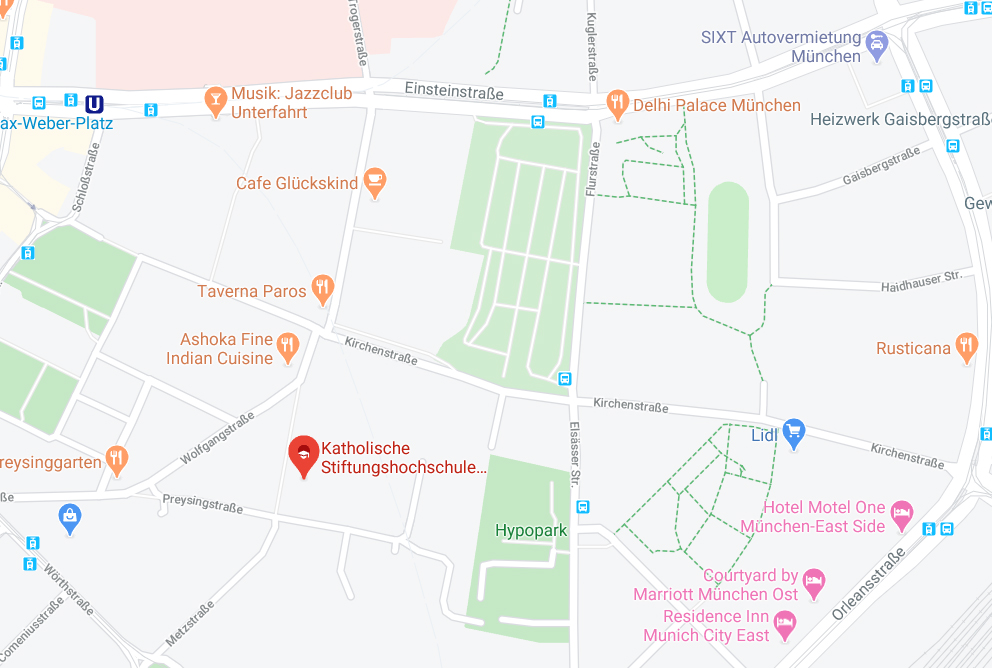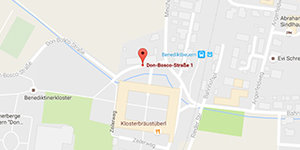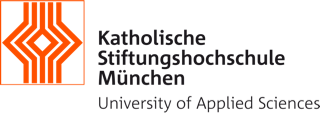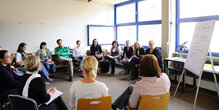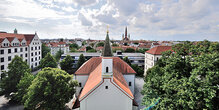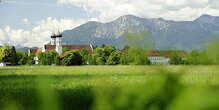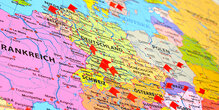Main areas of research
Research at the KSH Munich is highly practical and application-oriented. The subject areas correspond with the subject areas of our academic work, which are social work, childhood education, nursing management and nursing education as well as religious education. In addition to its highly academic and professional quality, research at the KSH is imbued with ethical principles based on the value of the individual. This diversity is also demonstrated in the university’s thematic clusters.

Individual research and development projects relate directly to the social issues of our time, such as migration, an ageing society and digitalisation, and therefore address current challenges. The findings from the research projects, which are produced with high-level comprehensive expertise, have, on the one hand, a direct influence on the developments of professional practice in the social work, education, healthcare and nursing sectors and, on the other, flow directly into the teaching at our university. They ensure that our students receive cutting-edge, innovative training based on real life practice. The field of in-house research and research training and/or teaching rooted in research is an important pillar and is reflected in our faculties. Strong regional partnerships and cooperation with local and regional health and social care providers are established and maintained. At the same time, those partnerships facilitate preliminary studies or projects that are (currently) not funded by third parties; in particular, they provide an constant influx on up-to-date questions in teaching, and are, not least, a very good opportunity for students to become familiar with research early on and to see how interested they are in a scientific career. Research projects are often elaborated in close collaboration with our partners (health and social care providers) and have a direct and indirect return effect (through conception, advanced and further training, teaching) on the practice. It also highlights the KSH’s strong focus on knowledge transfer.

The broad range of sponsors for third-party-funded research at the KSH (in the period 2016-2018) emphasises the good links in the region as well as in the church. Of course, research at the KSH also includes projects supported by third-party funding programmes by state institutions such as the Federal Ministry of Education and Research (BMBF) as well as research commissioned by regional or federal ministries.
As a result, the KSH is represented on the German Rectors’ Conference (HRK) Research Map as a location for outstanding application-based research on the realities of those involved in highly topical future-oriented fields.
Main areas of research
Research at the KSH Munich is highly practical and application-oriented. The subject areas correspond with the subject areas of our academic work, which are social work, childhood education, nursing management and nursing education as well as religious education. In addition to its highly academic and professional quality, research at the KSH is imbued with ethical principles based on the value of the individual. This diversity is also demonstrated in the university’s thematic clusters.

Individual research and development projects relate directly to the social issues of our time, such as migration, an ageing society and digitalisation, and therefore address current challenges. The findings from the research projects, which are produced with high-level comprehensive expertise, have, on the one hand, a direct influence on the developments of professional practice in the social work, education, healthcare and nursing sectors and, on the other, flow directly into the teaching at our university. They ensure that our students receive cutting-edge, innovative training based on real life practice. The field of in-house research and research training and/or teaching rooted in research is an important pillar and is reflected in our faculties. Strong regional partnerships and cooperation with local and regional health and social care providers are established and maintained. At the same time, those partnerships facilitate preliminary studies or projects that are (currently) not funded by third parties; in particular, they provide an constant influx on up-to-date questions in teaching, and are, not least, a very good opportunity for students to become familiar with research early on and to see how interested they are in a scientific career. Research projects are often elaborated in close collaboration with our partners (health and social care providers) and have a direct and indirect return effect (through conception, advanced and further training, teaching) on the practice. It also highlights the KSH’s strong focus on knowledge transfer.

The broad range of sponsors for third-party-funded research at the KSH (in the period 2016-2018) emphasises the good links in the region as well as in the church. Of course, research at the KSH also includes projects supported by third-party funding programmes by state institutions such as the Federal Ministry of Education and Research (BMBF) as well as research commissioned by regional or federal ministries.
As a result, the KSH is represented on the German Rectors’ Conference (HRK) Research Map as a location for outstanding application-based research on the realities of those involved in highly topical future-oriented fields.
